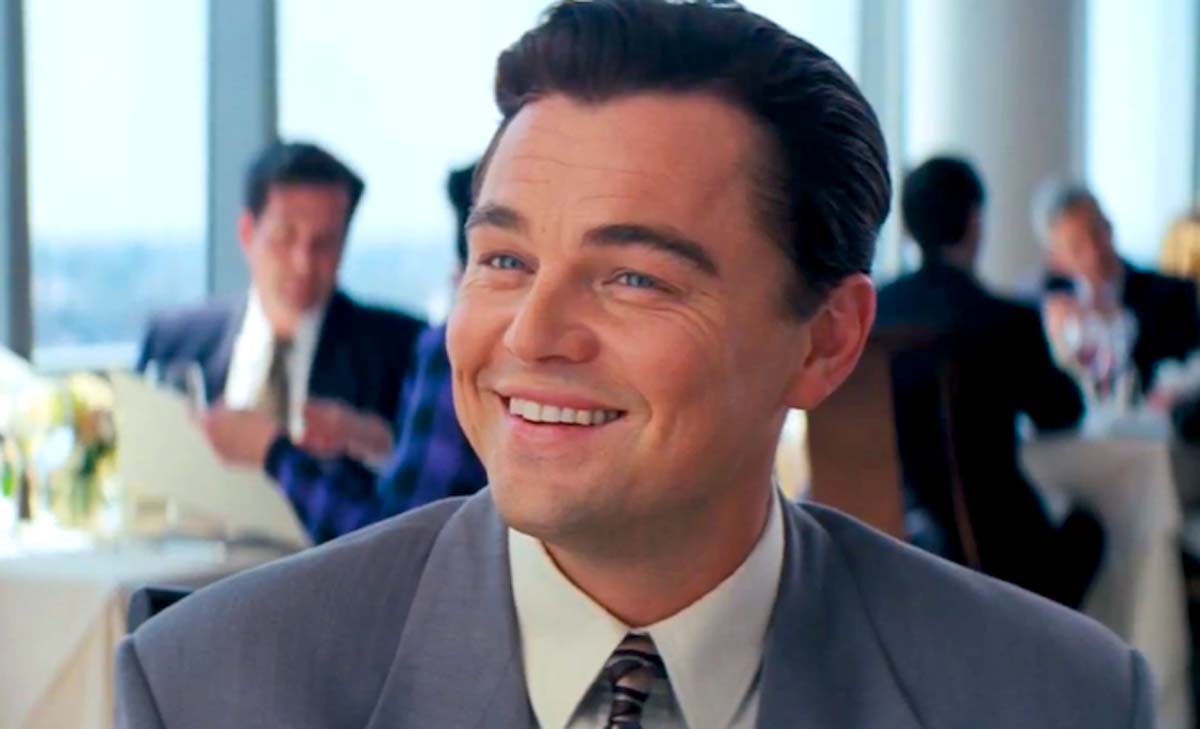
“The ugly fallout from the American Dream has been coming down on us at a pretty consistent rate since Sitting Bull’s time — and the only real difference now, with Election Day ’72 only a few weeks away, is that we seem to be on the verge of ratifying the fallout and forgetting the Dream itself.”
–Hunter S. Thompson, 1973
The following films range from the turmoil of the 1960s to the present date. Many depict dreamers who are living a nightmare world that they wish to wake up from, either through force or good intentions. Some are prophetic visions, while others could be construed as documentaries under the disguise of comedies, dramas, parodies, fantasies and/or pure science fiction.
Some are designed to make you think as well as tremble with the hopes that one day channels will changes or the raging tides will roll back and subside to calm balance. Regardless, they are meant to be entertaining and bring awareness to our surroundings, while serve as reminders that those who forget the past are condemned to repeat it.
1. Wild in The Streets (1968)
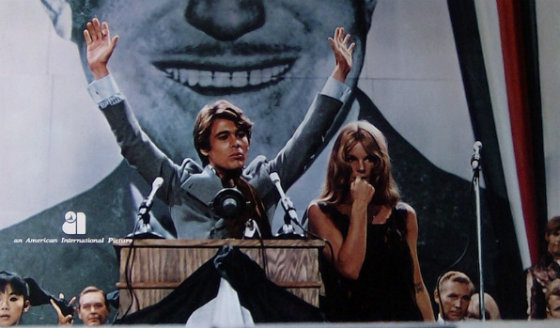
Hippy rock star and revolutionary, Max Frost (Christopher Jones) along with his band, The Troopers, consist of an attorney, a former child star and an anthropologist. Together they set about to change the structure of American politics and culture.
At a Democratic rally held by a Senate candidate, Max calls for the voting age to be lowered to fourteen and the band’s teenage fans begin to protest in support. Within days, a compromise is reached and lowered from twenty-one to fifteen. The Troopers become more influential and gain more political ground, by spiking the Washington water supply with LSD.
As the teenagers dominate the polls, Max is encouraged to run for President as a Republican and wins the coveted position in power. Eventually, he makes thirty the mandatory retiring age and those who are over thirty-five are sent to “re-education camps”.
Based on the novella “The Day It All Happened, Baby” by screenwriter Robert Thorn and directed by Barry Shear, “Wild in The Streets” was released in the election year of 1968. Vietnam, civil rights movements and political assassinations were on the minds and television sets of anyone with a pulse.
The film featured performances by Shelly Winters as Max’s nutty mother, Hal Holbrook as the Kennedy-stylized Senator Johnny Fergus and a young Richard Pryor as Stanley X the drummer for the Troopers. The role of Max was initially intended for folk singer Phil Ochs, but opted out due to its distortion of youth culture.
2. Joe (1970)
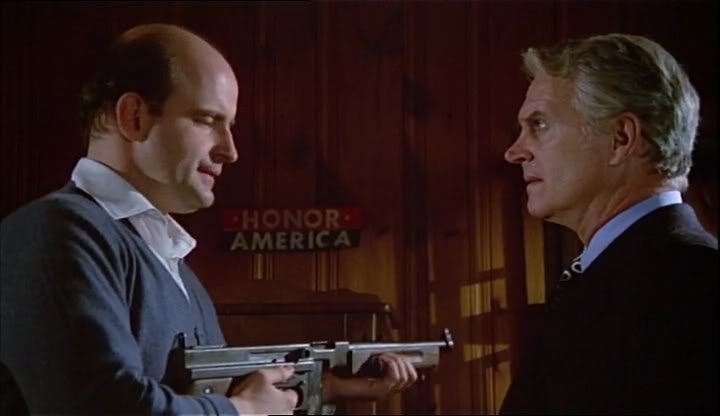
Bill Compton (Dennis Patrick) is wealthy advertising executive who lives with his family in New York’s Upper East Side. Much to disapproval, his daughter Melissa (Susan Sarandon in her debut role) is living with her boyfriend Frank, who is a drug dealer.
When she lands in the hospital upon overdosing on heroin, her father goes to the apartment to retrieve some of her clothes, only to confront and kill her lover in a fit of anger. Later, Bill heads to a neighborhood bar and encounters Joe (Peter Boyle), a factory worker who drunkenly rants about his hatred for hippies and minorities.
The business man confesses to the proletarian that he has just killed a hippy, but claims he was just joking. Days later, Joe gets word from the news that a drug dealer was just found dead and gives Bill call to meet for a drink.
Melissa flees from the hospital and she runs home, only to hear her parents discussing the murder of her boyfriend. Eventually, Bill teams up with Joe and they meet up with some hippies in a bar, with the hopes that they will lead them to her.
Directed by John G. Avildsen (“Rocky” and “Karate Kid”) and a script by Norman Wexler (“Serpico” and “Saturday Night Fever”) would gain critical acclaim, box office success and win the Oscar Award for Best Original Screenplay.
The character of “Joe” also was the inspiration for Archie Bunker from “All In The Family” in addition to other working class anti-heroes of its time. In the 1980s, rumors of Peter Boyle returning for a sequel known as “Citizen Joe” began to surface, but never came into fruition.
3. Death Race 2000 (1975)
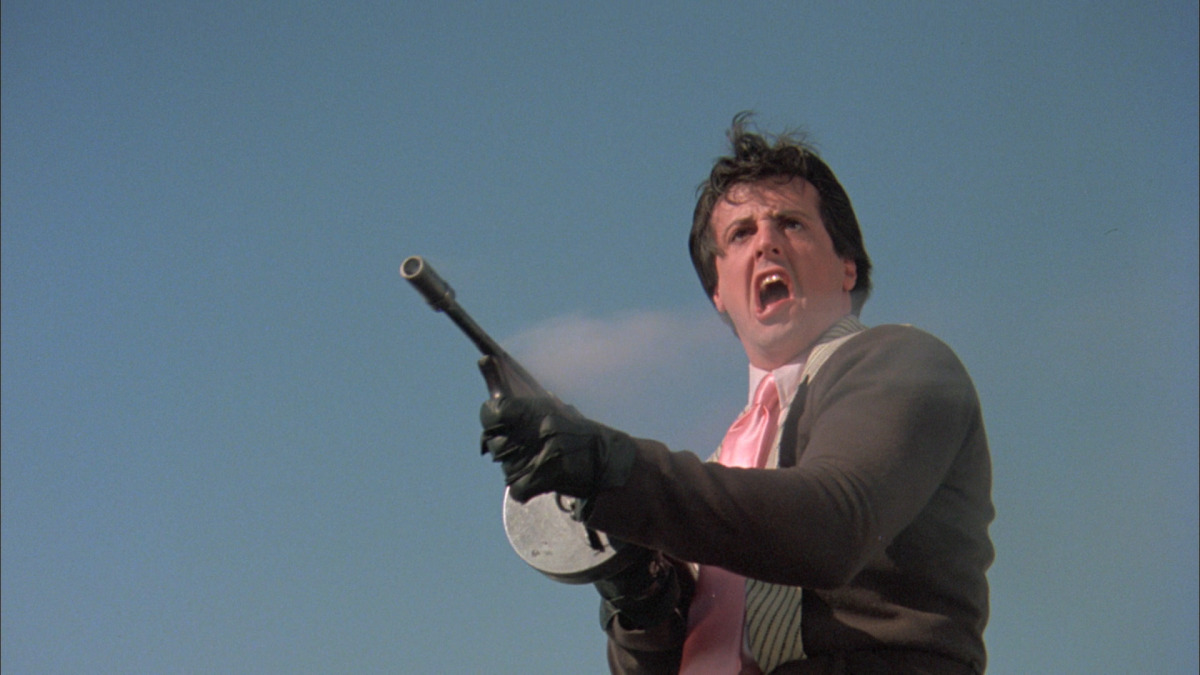
In the year dystopian year of 2000, a cross country motor race is happening where the drivers claim points for the variety of pedestrians that they strike. Among them are Calamity Jane (Mary Woronov), Machine Gun Joe (Sylvester Stallone), Matilda The Hun (Roberta Collins), Nero The Hero (Martin Kove) and the reigning champion Frankenstein (David Carradine), along with their respective navigators.
However, many saboteurs hatch elaborate plans to pick off the competitors and there a political resistance organization who appoint their leader’s granddaughter, Annie (Simone Griffeth), as Frankenstein’s partner, with the hopes of taking him out. As the race proceeds, the resistance disrupts the broadcast by announcing their involvement of sabotage, but is quickly covered by the government. One by one, the drivers are blown up or killed off in other ways.
Inspired by the short story “The Racer” by Ib Melchior, Roger Corman’s production company set out make a futuristic sports film. Under the direction of Paul Bartel (who makes a cameo as Frankenstein’s Doctor), the script was rather dramatic, until Robert Thom (“Wild in The Streets”) and Charles Griffith (“A Bucket Of Blood”) took the helm.
It did very well at the box office and drive-ins, thus becoming a Cult Classic. By 2008, it would be remade followed by two direct-to-DVD prequels.
4. Desperate Living (1977)
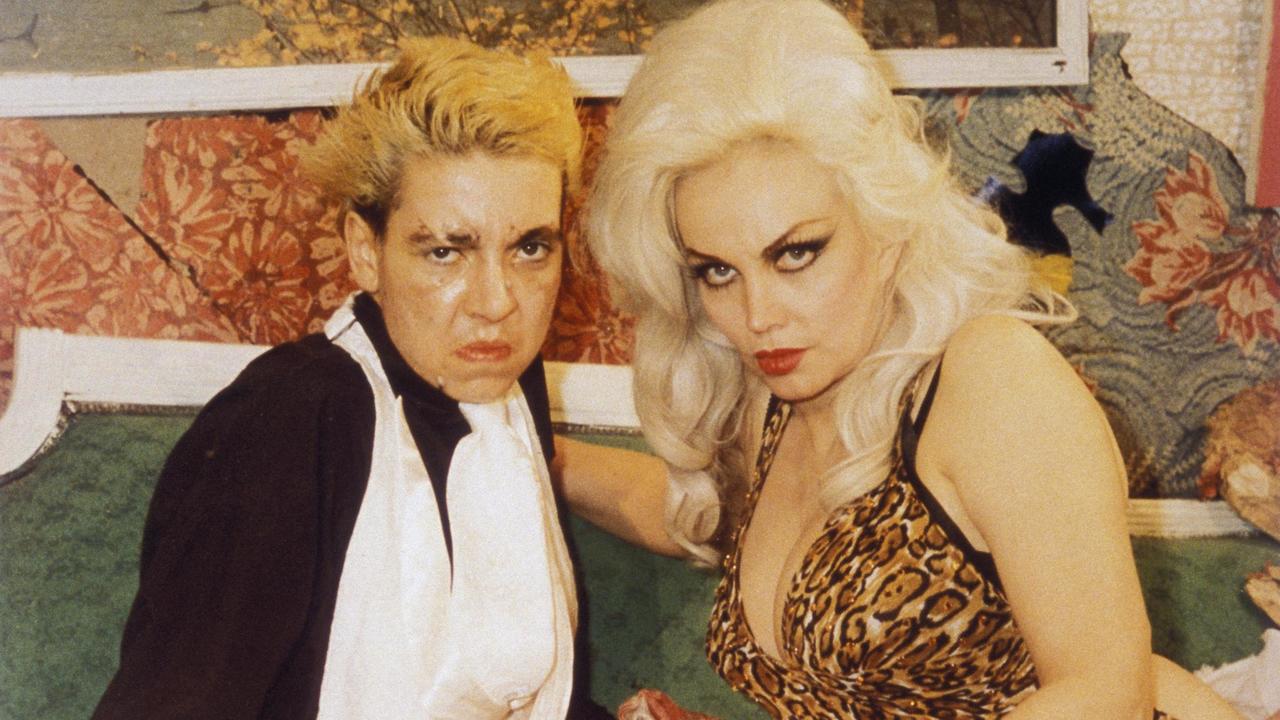
On a seemingly quiet afternoon in Baltimore’s suburbia, a delusional, neurotic housewife, Peggy Gravel (Mink Stole) and her obese, African-American maid, Grizelda Brown (Jean Hill), smother and kill the husband. Making a break for the secluded forest area, they are stopped by a perverted cop who informs them of Mortville, allowing them to go there once he acquires their panties.
The town is where known murderers, sexual deviants and other outlandish criminals are allowed to live, under the fascist ruling of Queen Carlotta (Edith Massey) and her leather clad goons, who also subject the citizens to cruel forms of abuse for sheer amusement.
Peggy and Grizelda rent a shack space from a self-loathing lesbian wrestler, Mole McHenry (Susan Lowe) and her voluptuous lover, Buffy St. Jacques (Liz Renay).
Written and directed by the Prince of Puke, John Waters, it was the first of his films to receive an “R” rating, when previous ones were either “X” or “NR”. Initially, the part of Mole was meant for Divine, but he was committed to a play called “The Neon Woman”. “Desperate Living” received some controversy of its depiction of lesbians, but has since been revered and fully embraced by the LGBT community.
5. Repo Man (1984)
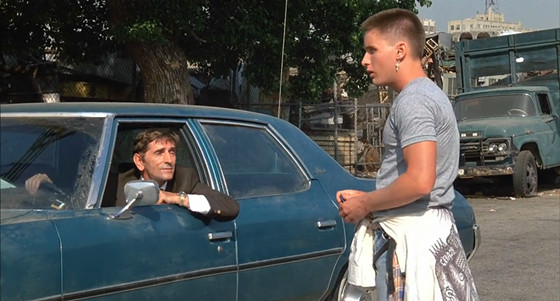
A young, isolated punk, Otto (Emilio Estevez), and his best friend, Kevin (Zander Schloss) are fired from their stock clerk jobs at grocery store in Los Angeles. Otto gains no support from his Christian-Zombie-Hippy parents, but finds employment repossessing cars, under the guidance of a speed freak named Bud (Harry Dean Stanton).
At the Helping Hand auto lot, they along with the other professional car thieves, get word of a $20,000 bounty on a 1964 Chevrolet Malibu, driven by a crazed doctor, J. Frank Parnell (Fox Harris). In the trunk of the car are the radioactive remains of dead aliens that obliterate any living creature once exposed.
Also trailing the vehicle are a UFO researcher named Leila (Oliva Barash), government agents and a rival repo team of brothers. Eventually, he comes across the illusive car and brings it to the auto lot, only for it to be stolen again. By this point, it has even more people seeking the car’s whereabouts, including a corrupt televangelist, a SWAT team, men in hazmat suits and various religious leaders.
Written and directed by Alex Cox (“Straight to Hell”), whom tagged along with real repo men on the hostile streets of Los Angeles. The science-fiction comedy features many in-jokes, such as all the Repo Men, except for Otto, are named after beers while all the food and beverages are labeled as Generic.
It also contains a classic punk rock soundtrack with songs by Iggy Pop, Fear, Black Flag, Suicidal Tendencies and the Circle Jerks (whom make an appearance as a lounge act). One of the best films released in 1984 and it would win a few awards at various independent festivals.
6. Amazon Women on The Moon (1987)
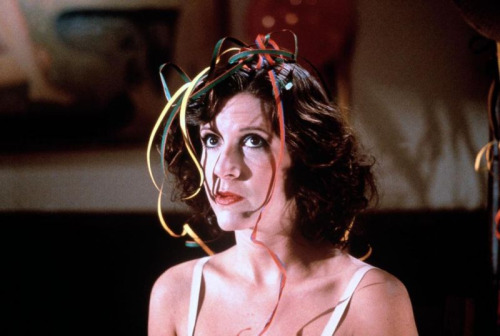
During a late night programming, television station WIDB on Channel 8 is experiencing plenty of technical difficulties during a 1950s science-fiction classic B-movie, “Amazon Women On The Moon”. In the feature, three male astronauts land on the moon, which is inhabited with beautiful women, exploding volcanoes and killer spiders.
During the showing, interruptions occur with infrequent channel surfing and bursts of static, occasionally landing on various programs, commercials and music videos.
Among them are: a documentary of a nude model (Monique Gabrielle), a public service announcement about “Blacks Without Soul” from B.B. King, two critics reviewing a man’s life as he watches it before dying, advertising for a compilation by musical artist Don Williams (David Alan Grier), a personalized video date, a couple of black and white films (“Son Of The Invisible Man” with Ed Begley Jr. and “Reckless Youth” with Carrie Fisher and Paul Bartel) and many more absurdities, before it returning to the main attraction.
Directed by Joe Dante, Carl Gotttlieb, Peter Horton, John Landis and Robert K. Weiss is a spoof on low budget films, television shows and commercials from the Lost Golden Age of Late Night Programming. It features “A Lot of Actors” ranging from Arsenio Hal, Michelle Pheiffer, Griffin Dunne, Sybil Danning, Archie Hahn, Rosanna Arquette and many more, along with cameos by Russ Meyer, Andrew “Dice” Clay, Kelly Preston, Steve Cropper (from Booker T. & MGs) and so much more.
Touted as the sequel to Landis’ “Kentucky Fried Movie”, it was shot in 1985, but wasn’t released until two years later with the pending lawsuit regarding the tragedy of “Twilight Zone—The Movie”. Alternative segments were shot for the TV version, then later turned up on the DVD release.